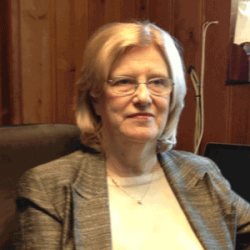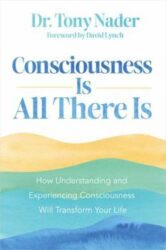An “Unparalleled” Tool for Women Who Make Music

Emerging relatively recently on the music scene, Canadian Tara De Santis has taken the Quebec music scene by storm and has been featured many times in the press including in an article in Elle Quebec. Calling herself Véda, she has already released more than 15 songs that have inspired hundreds of thousands of plays and her first studio album will debut this year. Her talent enabled her to obtain three different artists’ grants and a nomination at the Canadian Independent Music Video Awards for her song “Quiet.” She graciously made time for me to ask her some questions about her experience as a songwriter/singer/musician who practices the Transcendental Meditation technique.
Does TM help you prepare for a performance?
TM has been an unparalleled tool to deal with my stress on and off stage. I meditate twice a day and on rare occasions at a particularly stress-producing moment when I feel like I need additional support. The TM technique is always there for me–I close my eyes and can access this untouched, undisturbed state of mind–and because of that, I never feel alone or helpless. It’s really my best friend. I feel emboldened and capable when I meditate.
How has the growth you’ve experienced from the TM practice helped you in expressing your music?
The year I started practicing TM regularly, I wrote 200 songs! I felt exceptionally inspired. I had already written songs, but there truly was a physiological and mental awareness that TM brought me, making it crystal clear that I had to write songs for a living—positive songs that promote peace and feeling goooooooood. Music that promotes human connection. It’s like all the answers came to me all of a sudden. Sometimes I’ll be driving but have to pull over my car to write down a sentence, or I’ll be at the gym and will stop my workout to write a few words because I don’t want to forget the idea. TM is a fertilizer for imagination that permeates my whole day, long after I’ve finished my meditation.
There are both technical and creative aspects of music creation and performance – right and left brain. Does TM help with both?
Absolutely. As a vocalist, lyricist, and music producer, TM enables me to tap directly into my creativity. Effortlessly. No need for drugs, caffeine, or external stimulants when you have direct and unconcealed access to your creative intelligence. With TM, you approach ideas from a different angle for lyrics, melodies, music videos, and visuals. That’s why I see tremendous potential for artists and creators meditating. Transcendental Meditation is a formidable tool that could empower the next generation of creators with sustainable ways of creating.
We understand that you learned TM at a young age. Was there ever a time when you were creating without the benefit of having learned TM? If so, what differences have you noticed in the creative process before and after learning TM?
I was diagnosed with ADHD (attention deficit disorder with hyperactivity) when I was 15 years old and put on medication right away. It made me strikingly efficient in school, in sports, and in life in general, but my creativity felt suppressed. When I turned 18, I had the absolute privilege to learn Transcendental Meditation, a practice my parents introduced me to and absolutely approved of. I then chose to switch from medication to meditation and never looked back when I saw that there were no side effects, except great joy and inventiveness.
So much popular music is about heartache and difficult relationships. Do you find it challenging to express more uplifting themes?
Not at all!! More and more I feel that producing and performing music brings me more full circle: flowing from deep within my being to an outer expression. I’m all about music that incorporates the full spectrum of human experiences, and that ranges from euphoria to heartache and rejection. All experiences and emotions are valid and can be expressed in music safely. I like to describe my music as introspective sounds, rooted in a wide spectrum of experiences soaked up from integrating silence and dynamism.
Do you have any advice for other women who want to follow their musical dreams?
To me, life is too short to not follow your dreams. And it’s too long to do something you don’t like. The actor Jim Carrey came to my university a few years back and gave a remarkable speech that encapsulates exactly my mentality: ‘’It’s Better to Fail at What You Love Than Fail at What You Don’t. What we really want seems impossibly out of reach and ridiculous to expect so we never ask the universe for it.’’ Yes, failure is always a possibility, but leaps of faith can lead to grand things!!! Especially in the music industry, where equality remains out of reach for women, it is vital we take a chance! A study funded by Spotify in 2021 found that over the past decade, women only make up 12.7% of songwriters and 2.8% of music producers. Now is our time—keep making music, ladies, and share it with the world.
Thank you, Tara! We are sure you will achieve great success.
Use these links to check out Tara’s music:
Reduce Stress and Improve Creativity and Joy: Contact a Certified TM Teacher
About the Author
Sarah Chell is a chamber music singer and flautist as well as a certified teacher of the Transcendental Meditation technique.





